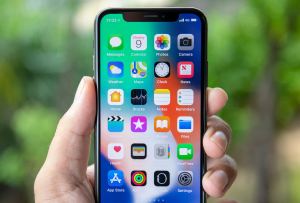Happy National App Day! No, we don’t mean apps of the mozzarella stick and potato skin variety, but your mobile apps that let you order dinner, hail a taxi, stay connected to your friends, and entertain you for hours with silly videos. While they’re undoubtedly useful, mobile apps are also a weak spot in some people’s digital safety. Cybercriminals take every chance they get to trick people through all kinds of technology, and mobile apps are no exception.
To celebrate National App Day, here are a few tips to keep your mobile and your personally identifiable information (PII) safe.
Prominent 2022 Mobile App Security Events
Did you know that there are hundreds of apps on the Android and Apple app stores whose only aim is to steal your passwords? In 2022, Meta identified more than 400 fake apps disguised as various utilities that targeted users to weasel Facebook login and password combinations.1 Malicious apps also regularly masquerade as photo editors and wallpapers but their real purpose is to run malware in the background of the mobile device, such as this Squid Game app from 2021.
Little-known apps aren’t the only ones you have to be wary of either. The biggest companies are also falling to cybercrime. For instance, more details recently came to light about a breach at Uber that leaked the PII of 57 million users. Plus, the popular mobile payment service, Cash App had the personal details of 8.3 million current and former users leaked.2
5 App Security Tips to Bring With You into 2023
To keep your cellphone free of malicious software and your PII and password secure, take these five mobile security tips with you into the new year.
1. Delete old apps.
The new year is as good a time as any to unload any unnecessary baggage, emotional, literal, or in this case, digital. Go through your phone and delete the apps you haven’t used in the last six months. Make sure to completely delete your account with that app and not just hide it from your homepage. The smaller your digital footprint, the less at risk your PII is of being compromised in a breach.
2. Carefully vet new apps.
Before you download any new app, it’s a good idea to conduct some background research on it. How many detailed reviews does it have? Who is the app developer? A phony app usually reveals itself through its lack of reviews. Consider apps with less than 50 reviews fishy. Skim the reviews for specific details and typos. If it’s lacking in detail but brimming with typos and grammatical mistakes, it could signal a fake. This research should take about five minutes, so don’t worry; it shouldn’t be too much of an inconvenience, and that time will be well spent.
3. Stay on top of security news.
Just like it’s a good idea to keep on top of global news, set up news alerts for cybersecurity breaches. If a company falls to a cybercriminal, the alert will give you the valuable time you need to act quickly to either delete your account or change your password.
4. Use unique passwords.
For every online account, it is essential to create a unique password or passphrase. That way, if you do get hacked through an app or get tricked by a fake one, you don’t have to worry about cybercriminals using that password to walk into your other accounts. Password managers are an excellent way to keep all your passwords secure and free up your brain space for things other than dozens of passwords.
5. Share as few personal details as possible.
When you sign up for a new app, you can expect to give it a username, a password, and maybe your first name; however, if it has optional fields for your full birthday or your address, consider leaving those blank. The less information the company has about you, the less that can end up in cybercriminals’ hands if the app is breached.
Enjoy Safe Mobile Apps in 2023
The first step to better cyber habits is arming yourself with the knowledge of the threats that are out there. The best advice here is to slow down, observe and think about your next move every time you download a new app. The signs of a fake are usually not difficult to spot. Then, once you’re confident in its legitimacy, limit the amount of PII you share with it. In this digital world we live in, consider everyone susceptible to a breach.
To give you peace of mind, supplement your great habits with a tool, like McAfee+ Ultimate, that will cover all your bases and be your partner to live your best private life online.
1Tech.co, “Data Breaches That Have Happened in 2022 So Far.”
2Termly, “98 Biggest Data Breaches, Hacks, and Exposures.”

